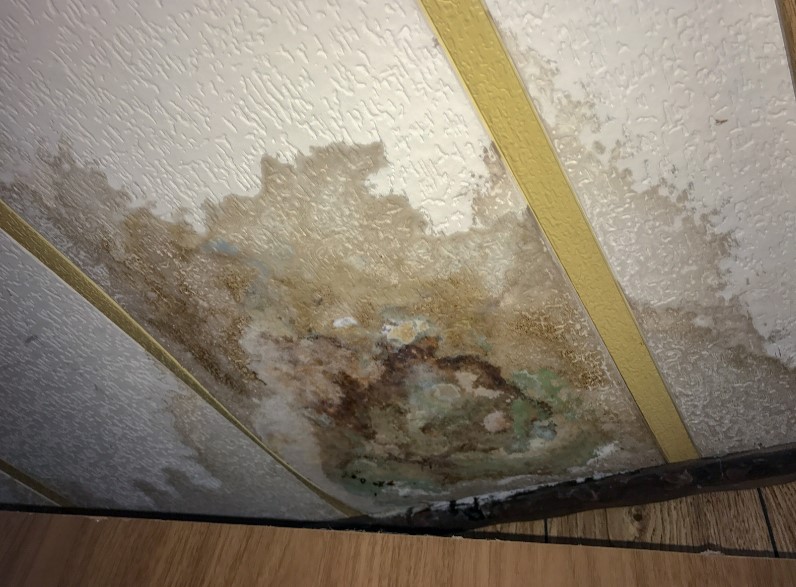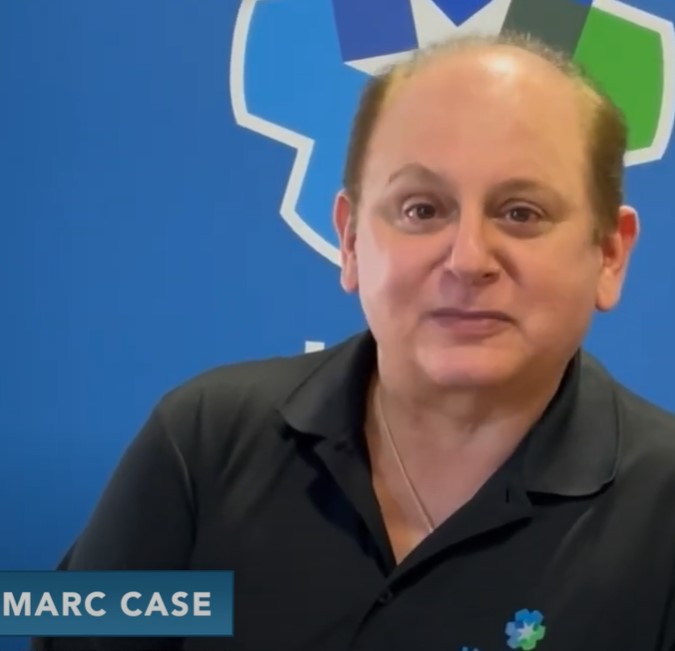
The east coast of New Jersey which includes Monmouth County, Ocean, Atlantic and Cape May County, NJ is considered to be a humid region where the persistent issue of mold growth in homes is more than just a minor inconvenience. Mold growth is a potential health hazard that can significantly affect indoor air quality. When mold remediation is needed, homeowners often find themselves thinking about the cost of mold cleanup.
The question is, does homeowners insurance cover mold removal in New Jersey, especially in cases where mold results from hidden water damage, burst pipes, or the simple presence of mold spores that thrive in damp conditions?
Mold problems affect about 4.6 million households in the United States each year and FEMA says that floods are the most common disaster in the United States. Understanding the coverage details of your homeowners insurance policy is crucial in navigating the complexities of mold remediation without incurring unexpected out-of-pocket expenses. Knowing about the intersection of mold remediation and insurance coverage should offer homeowners peace of mind and practical solutions for maintaining a safe, mold-free living space.
Understanding Homeowner’s Insurance and Mold Remediation
New Jersey homeowners asking if homeowners insurance covers mold issues, should understand that policies can vastly differ across various home insurance companies. Some policies may offer mold remediation coverage, especially when the mold is a result of a covered peril such as a burst pipe or hidden water damage.
Most standard homeowner’s insurance doesn’t cover mold in other scenarios. Some homeowner’s insurance plans will pay to get rid of mold and fix any problems that come up because of it if the policy covers the source of the mold. However, other policies may exclude mold remediation altogether or only provide limited coverage. This variability underscores the critical need for homeowners to meticulously review their homeowners insurance policy to ascertain the specifics of mold coverage.
Being proactive in this regard can save a lot of time, money, and effort in the long run, especially in emergency mold situations stemming from unexpected water-related damages.
Checking Your Policy for Mold Coverage
Understanding the specific details of your policy regarding mold remediation is paramount. Homeowners are encouraged to directly contact their insurance agents to inquire about mold growth coverage specifics.
Questions to ask should include whether the policy covers mold removal, under what circumstances mold remediation is covered, and if there are caps on coverage amounts. For instance, if mold results from a burst pipe, is that considered a covered peril? Or, does the implementation of a dehumidifier or air conditioner to prevent mold growth influence the coverage in any way?

FEMA’s ready.gov website advises homeowners to purchase or renew their flood insurance policy as floods are not covered by most homeowner’s insurance policies . They also point out that just one inch of water in an average sized home can cause more than $25,000 in damage.
Gathering detailed information about YOUR coverage will help homeowners be better prepared to tackle mold issues without facing unexpected out-of-pocket expenses. By being informed and understanding the intricacies of their homeowners insurance policy, individuals can ensure they take the necessary steps towards maintaining a mold-free, healthy living environment while also navigating the financial aspects of mold remediation with confidence.
Accessing Your Policy Details
Gaining a clear understanding of what your homeowner’s insurance policy covers can make a significant difference when you’re faced with mold issues in your home. Here’s a step-by-step guide to help you review your policy effectively:
Start by Locating the Mold Remediation Clause
Often, policies will have a section dedicated to mold damage and remediation. Look for terms like “mold remediation,” “fungus coverage,” or “microbial growth.” This section should outline whether mold damages caused by specific scenarios (like hidden water damage) are covered.
A homeowners policy should cover mold in the following situations:
Appliance leak: If your dishwasher has been leaking without your knowledge and caused water damage and mold growth. In that case, mold could be covered by a policy.
Bursting pipes: The same is true for mold that results from pipes that burst due to heat, cold or other causes.
Leaking pipes: A pipe leak may have caused water damage that led to mold. Regular homeowners coverage could apply.
Water heater explosion: If a water heater leaks or explodes and causes water damage that leads to mold, this may be covered by your policy.
Water damage from putting out a fire: If a fire extinguisher is used to put out a fire and this results in water damage that leads to mold, that may be covered.
You have to act fast. If you have had a leaky pipe for months and you never got around to fixing it, for example, your homeowners insurance probably won’t cover mold or even the damage caused by the water.
Contact Your Insurance Agent
If the policy wording is unclear or you can’t find specific references to mold, it’s time to reach out directly to a public insurance adjuster or to your insurance provider. Prepare a list of questions focusing on whether home insurance covers mold removal, the circumstances under which mold remediation is covered (for example, if mold results from hidden water damage), and if there are limits to the coverage amount.
Tips for Navigating Mold Remediation Coverage
Understanding your policy’s specifics might seem confusing. Below are tips to help prepare homeowners to handle mold growth with the backing of their home insurance:
Document Everything
Before you get in touch with your insurance provider, document the mold damage. Take photos and jot down all relevant details. This can be crucial for your claim, especially in cases where mold is a result of hidden water damage.
Know the Limits and Deductibles
Home insurance policies that cover mold often have caps or limits on the coverage amount. Make sure you understand these limits and how they apply to your scenario. Additionally, be aware of your policy’s deductible and how it factors into mold remediation costs.
Prevention Matters
Ask your insurer if implementing preventive measures like dehumidifiers or air conditioners affects your coverage or premiums. Sometimes, evidence of preventive actions can positively impact your claim or insurance rates, especially in damp areas prone to mold.
By following these steps and tips, homeowners can better understand their home insurance cover mold remediation and hidden water damage coverage. This knowledge empowers homeowners to tackle mold issues more efficiently, ensuring a healthier living space while minimizing out-of-pocket expenses.
Steps to Take if You Find Mold in Your Home
Discovering mold in your home can be upsetting, but taking immediate and appropriate action can mitigate potential health risks and property damage. Here’s what you should do:
Don’t Disturb the Mold
Disturbing mold can cause it to release spores into the air, exacerbating the problem. Instead, contact a professional mold remediation company to assess the situation and create an action plan.
Contact a New Jersey Mold Professional
As a homeowner in Monmouth County, Ocean County, or the surrounding areas, reaching out to Mastertech Environmental for a professional mold inspection is a crucial first step. Our team specializes in mold remediation, water, and biohazard cleanup, ensuring your home or business remains mold-free with a compassionate and professional approach.

Review Your Homeowner’s Insurance Policy
After contacting a professional, revisit your homeowner’s insurance policy or speak with your insurance agent to confirm if mold remediation is covered. If it is, understand the process for filing a claim, including what documentation is needed and any time limits for submitting a claim. This step ensures that you can take advantage of any financial assistance available to you for mold removal.
Take Preventive Measures
Once the mold has been professionally addressed, take steps to prevent future mold growth. This can include fixing any leaks or water damage that contributed to the mold, improving ventilation in areas prone to dampness, and regularly monitoring humidity levels in your home. Your insurance provider may also have recommendations for preventive measures that could positively impact your coverage or premiums.
Mastertech Is Here To Help
Understanding the nuances of your homeowner’s insurance policy regarding mold remediation is vital. Not all policies cover mold damage, and being caught unprepared can lead to significant out-of-pocket expenses.
We encourage homeowners to proactively review and, if necessary, update their insurance to ensure mold remediation coverage. Putting in the effort now can protect you against the costs associated with mold cleanup, which can be extensive depending on the severity of the issue.
MasterTech Environmental is dedicated to providing the highest quality cleanup services for mold, hoarding, and biohazard situations in residential and commercial properties throughout New Jersey. With our focus on the well-being of our clients and their properties, you can trust us to handle sensitive issues with the utmost care and professionalism.
Note:
This article provides general guidance and should not be taken as specific financial or insurance advice. Always consult directly with your insurance provider for the most accurate and up-to-date information regarding your policy’s coverage.

